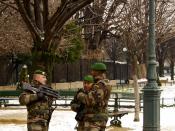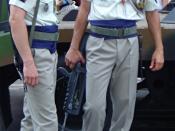A total of twenty-nine Americans enlisted in the French Foreign Legion in the first month of WWI. Jimmy Bach was the first of them to transfer to the French Flying Service, but was followed by William Thaw, of Pittsburgh Pennsylvania. Bill Thaw helped form the Lafayette Flying Corps, and was the only one of its seven original members still on active duty when the war ended.
Thaw was a large man with black hair, black eyes, and a walrus mustache. He learned to fly in a Curtiss hydroplane in the United States and was flying through Europe when WWI started. He often visited France and became very fond of the country so he went to Paris to enlist in the French Flying Service. However, he ran against the French law forbidding any foreigner to enlist in France's regular armed forces.
The reason for that law was that the French feared that foreign espionage agents might get into the French Flying Service .
An enemy spy on the ground was bad but in an airplane he could get unlimited military information.
The French had good reason to be suspicious because of an incident that occurred early in the war. A man with forged American papers succeeded in enlisting in the French Flying Service. Nobody knows how he was ever allowed to enlist but he was accepted and sent to flying school at Pau. There he finished his flight training but when he was about to be breveted and sent to a squadron at the front he disappeared. About two months later he was found in the United States posing as a French pilot on leave. He spread stories that were most damaging to France through newspaper interviews and magazine articles that he wrote. Later it was found that he sold...



WW1: French Flying Service
This essay really isn't that bad. Overall it gets the point across and it provides info that not too many people know about. One criticism is that there is a lack of an established thesis. The other commentator presumed that this essay was more focused on the actual American pilots of the war, while its main focus is their actual struggle to gain admittance. It may be hard to tell the actual central idea if you don't have a solid intro paragraph. Not a criticism, but something I'd like to know: why would Americans want to enlist on behalf of the French in the first place? Thanks.
1 out of 1 people found this comment useful.